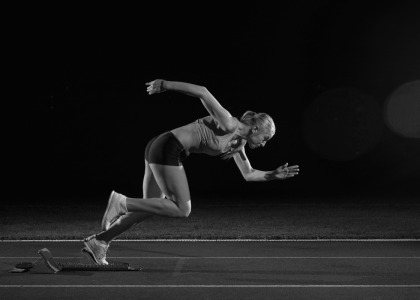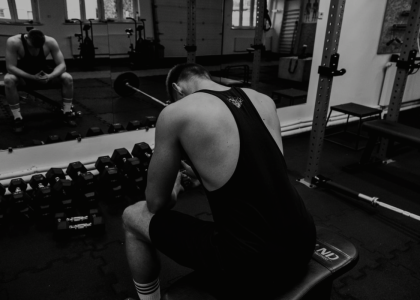Athletes spend countless hours perfecting their physical skills, honing their technique, and pushing their bodies to their limits. Yet, there is a critical component of success that often remains underdeveloped: the mind. Psychological and emotional factors play a massive role in athletic performance, often acting as the dividing line between good and great athletes. Whether you’re a weekend warrior or an elite competitor, the ability to fine-tune your mental and emotional skills can offer a serious competitive advantage.
The Mind-Body Connection in Sports
Athletic performance isn’t just about muscle strength, endurance, or agility. It’s about how well your body and mind work together under pressure. Stress, self-doubt, and fear of failure can significantly impact performance, while confidence, focus, and resilience can propel you to new heights. This interplay between mental and physical performance is supported by decades of research in sports psychology.
Take, for example, an Olympic sprinter standing at the starting blocks. Their physical training is identical to their competitors, but their ability to remain calm, focused, and confident can determine whether they win or lose. Similarly, in team sports, a player’s ability to handle pressure, maintain composure, and adapt to rapidly changing situations can influence the entire team’s performance.
Key Psychological Skills for Athletes
Developing mental skills doesn’t happen overnight, but with deliberate practice, athletes can cultivate a psychological toolkit that enhances their performance. Here are some key areas to focus on:
- Goal Setting: Clear, actionable goals provide a sense of purpose and direction. Effective goal setting involves breaking down long-term aspirations into manageable short-term objectives.
- Focus and Concentration: Maintaining attention on the task at hand while filtering out distractions is essential in high-pressure environments. Mindfulness practices and visualization can help athletes improve their focus.
- Stress Management: High-pressure moments can lead to anxiety and diminished performance. Techniques like deep breathing, progressive muscle relaxation, and meditation can help athletes stay calm under pressure.
- Resilience: Failure is an inevitable part of any athletic journey. Building resilience ensures that setbacks become stepping stones rather than roadblocks.
- Confidence: Confidence is built through preparation, positive self-talk, and visualization of success. Believing in your abilities can make a measurable difference in performance.
- Emotional Regulation: Sports often bring intense emotions, from frustration to elation. Learning to manage these emotions helps athletes remain composed and focused during critical moments.
The Role of Emotional Intelligence in Sports
Emotional intelligence (EI) — the ability to recognize, understand, and manage emotions — is another powerful asset for athletes. High EI allows athletes to:
- Navigate interpersonal dynamics with teammates, coaches, and opponents.
- Recognize and adjust their own emotional states during competition.
- Use emotions as a source of motivation and energy rather than allowing them to become distractions.
Studies have shown that athletes with high emotional intelligence tend to perform better in pressure situations, communicate more effectively, and experience greater satisfaction in their sports careers.
Practical Tips for Fine-Tuning Your Mental Game
To start building your psychological and emotional skills, try incorporating these practices into your training routine:
- Visualization: Spend time mentally rehearsing your performance. Imagine every detail, from your warm-up to the critical moments of competition. Visualization primes your brain for success and helps reduce pre-performance anxiety.
- Mindfulness: Practice being fully present during training sessions. Notice the sensations in your body, your breathing, and your thoughts without judgment. Mindfulness enhances focus and reduces stress.
- Pre-Performance Rituals: Develop a consistent routine before competitions to help you enter a focused and confident state of mind.
- Journaling: Reflect on your performances, noting what went well and what could improve. Journaling helps identify patterns and track progress.
- Seek Feedback: Work with coaches, mentors, or sports psychologists to gain insights into your mental and emotional performance.
Why the Mental Game Matters at Every Level
It’s easy to assume that mental skills are only relevant for elite athletes. However, athletes at all levels can benefit from improving their mental game. Whether you’re competing for a gold medal, setting a personal best, or simply enjoying a recreational sport, developing psychological and emotional resilience can enhance your experience and results.
For youth athletes, building mental skills fosters confidence and a positive relationship with competition. For recreational athletes, these skills can bring more enjoyment and fulfillment to the sport. And for professionals, the mental edge often separates champions from the rest of the field.
How AthleteMindFit Can Help You Unlock Your Potential
At AthleteMindFit, we understand the critical role the mind plays in athletic success. That’s why we’ve developed a revolutionary app designed to help athletes of all levels fine-tune their psychological and emotional skills. From mindfulness exercises and visualization tracks to pre-competition SOS sessions, AthleteMindFit is your personal coach for the mental game.
With tailored programs and actionable tools, the app empowers you to:
- Build unshakable confidence.
- Stay focused under pressure.
- Develop resilience in the face of challenges.
- Enhance your emotional intelligence.
- Channel your passion into peak performance.
Whether you’re preparing for your next competition or looking to elevate your daily training, AthleteMindFit is here to guide you every step of the way. Join us on the journey to becoming the best version of yourself — body, mind, and soul.
Start your mental training today with AthleteMindFit. Because success starts from within.




